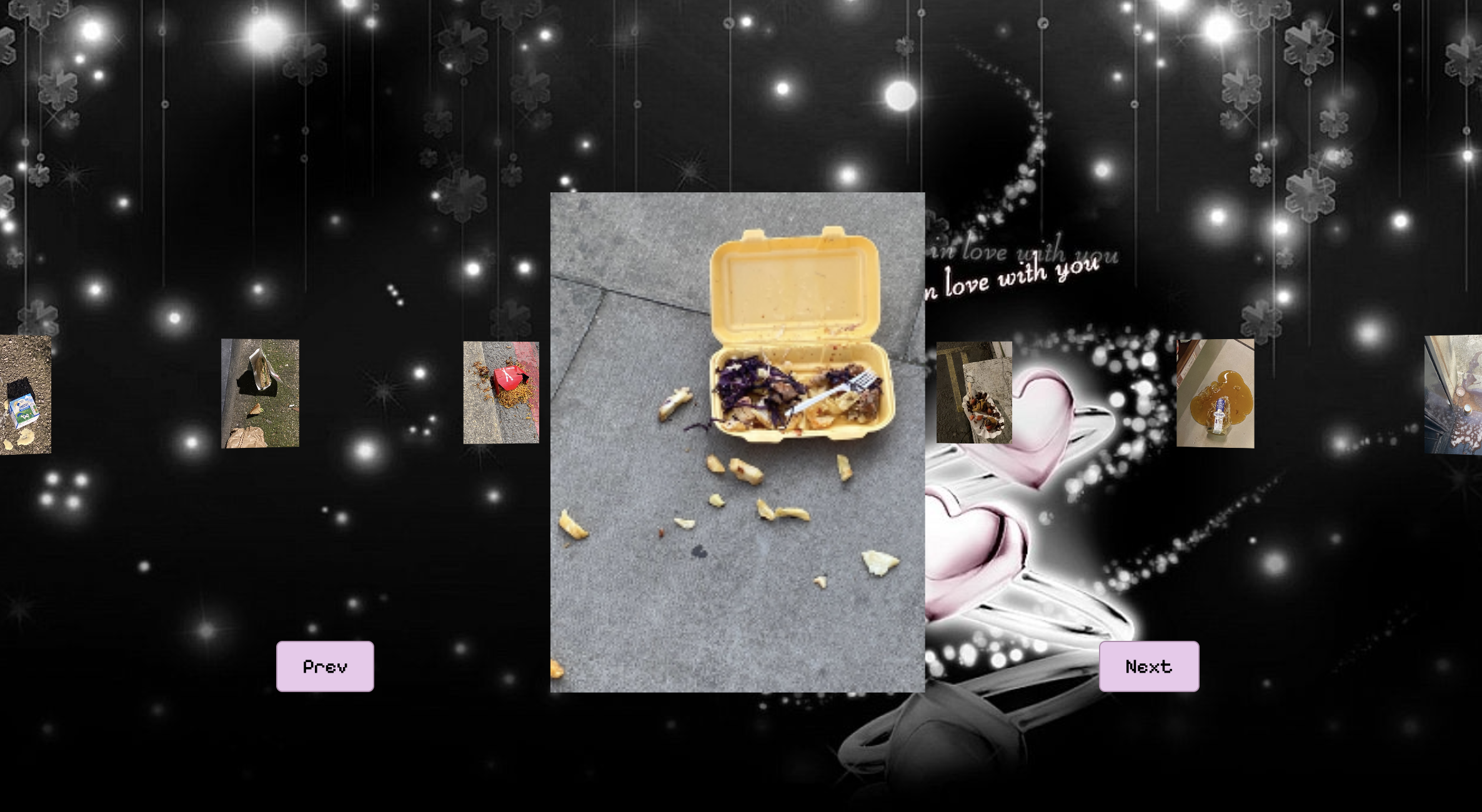
London Love Story
(2025) London
In the streets of London, an upturned coffee cup or a fallen sandwich is more than just litter. To me, it becomes a metaphor for the capricious nature of love—or the act of finding it. These photos I’ve taken on my iPhone of accidentally dropped food capture small, comical moments of loss amidst the city’s chaos, yet they also hint at unexpected gains.
Take a spilled ice cream cone, for example. Visually, it’s a minor tragedy turned absurd. But in my mind, it becomes a scene of possibility—a chance encounter sparked by that very mishap, with a personal or emotional connection unfolding behind it. Living in London, unpredictability feels like the norm—missed buses, sudden rainstorms, detours down unfamiliar streets, spontaneous conversations with strangers in pubs. Every disruption holds the potential for something new. Our meaning-seeking minds are wired to find significance in these moments, and so, a random brush with a stranger might feel like fate — just as spotting a whole dropped pizza on the pavement does.
When you drop your much-anticipated lunch, the initial feeling is loss—of sustenance, pleasure, or something you were looking forward to. Metaphorically, it mirrors heartbreak or missed chances in love that we all experienced. Just as food slips from your hand without warning, love too can vanish—or appear—without notice, leaving you with a messy aftermath on the ground.
What I found interesting is that the English language already entwines love with the idea of falling. We speak of “falling in love” as though it’s a stumble, an accident. Cognitive linguists note that the phrase suggests a sudden loss of balance and control. To me, the image of dropped food mirrors this perfectly: love, especially in London, often arrives unannounced and unplanned—like a gust of wind knocking your lunch to the ground. That moment of shared humanity—born of chaos and chance—captures what the process of falling in love in London feels like: unpredictable, sometimes ridiculous, and always a little bit messy.
Take a spilled ice cream cone, for example. Visually, it’s a minor tragedy turned absurd. But in my mind, it becomes a scene of possibility—a chance encounter sparked by that very mishap, with a personal or emotional connection unfolding behind it. Living in London, unpredictability feels like the norm—missed buses, sudden rainstorms, detours down unfamiliar streets, spontaneous conversations with strangers in pubs. Every disruption holds the potential for something new. Our meaning-seeking minds are wired to find significance in these moments, and so, a random brush with a stranger might feel like fate — just as spotting a whole dropped pizza on the pavement does.

When you drop your much-anticipated lunch, the initial feeling is loss—of sustenance, pleasure, or something you were looking forward to. Metaphorically, it mirrors heartbreak or missed chances in love that we all experienced. Just as food slips from your hand without warning, love too can vanish—or appear—without notice, leaving you with a messy aftermath on the ground.
What I found interesting is that the English language already entwines love with the idea of falling. We speak of “falling in love” as though it’s a stumble, an accident. Cognitive linguists note that the phrase suggests a sudden loss of balance and control. To me, the image of dropped food mirrors this perfectly: love, especially in London, often arrives unannounced and unplanned—like a gust of wind knocking your lunch to the ground. That moment of shared humanity—born of chaos and chance—captures what the process of falling in love in London feels like: unpredictable, sometimes ridiculous, and always a little bit messy.
